| A | B |
|---|
| 13th | abolished or outlawed slavery |
| 14th | ensures each citizen the 'right to due process and the equal protection of the law'. |
| 15th | Gave all men the right to vote regardless of race or color or whether they had been slaves., 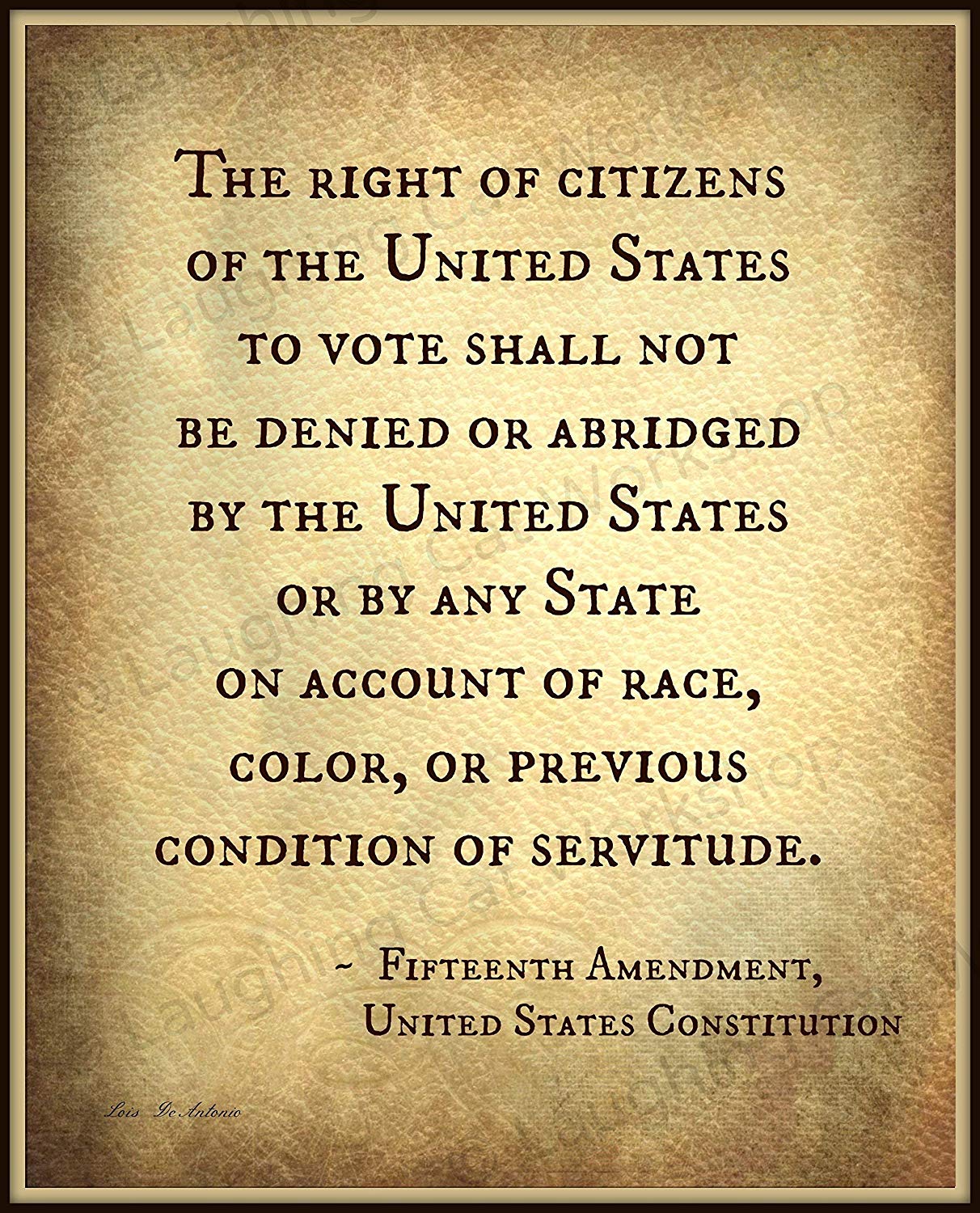 |
| Freedmen's Bureau | THe Freedmen's Bureau was established by Congress as the Bureau of Refugees, Freedmen, and Abandoned Lands on March 3, 1865, to aid and protect former slaves after the end of the war. Provide food, money, and other resources that were needed to survive. |
| Jim Crowe Laws | Jim Crow laws were laws in the South based on race. They enforced segregation between white people and black people in public places such as schools, transportation, restrooms, and restaurants. They also made it difficult for black people to vote. They were meant to keep blacks from being equal., 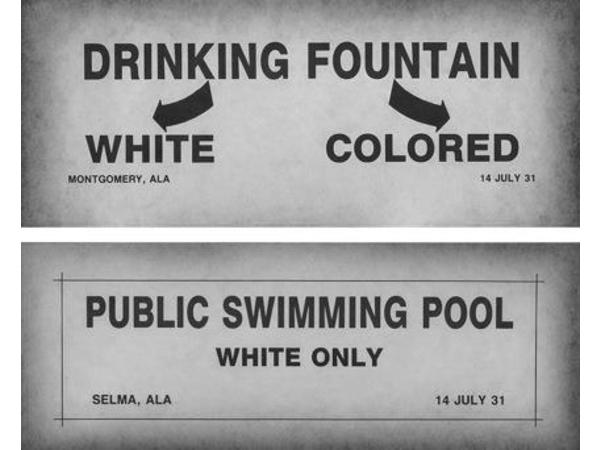 |
| Sharecropping | Sharecropping is a term for when one person farms another person's land, and then the two share what is produced. Sharecroppers are almost always poor, and are often in debt to landowners or other people. Sharecropping was very common in the Southern United States after the Civil War and the end of slavery. At that time, many African-Americans sharecropped on the land that they had once farmed as slaves. Sharecropping was part of the system of "Jim Crow", which kept blacks poor and not really citizens. |
| Chisholm Trail | Cowboys often worked on cattle drives. This was when a large herd of cattle was moved from the ranch to a market place where they could be sold. A lot of the original cattle drives went from Texas to the railroads in Kansas. The Chisholm Trail was the cattle highway of the West in the period of history after the Civil War. This trail and the cowboys who traveled it were an important link to rebuilding Texas after the war. |
| Wright Brothers | Orville and Wilbur Wright are credited with inventing the airplane. They were the first to make a successful human flight with a craft that was powered by an engine and was heavier than air., 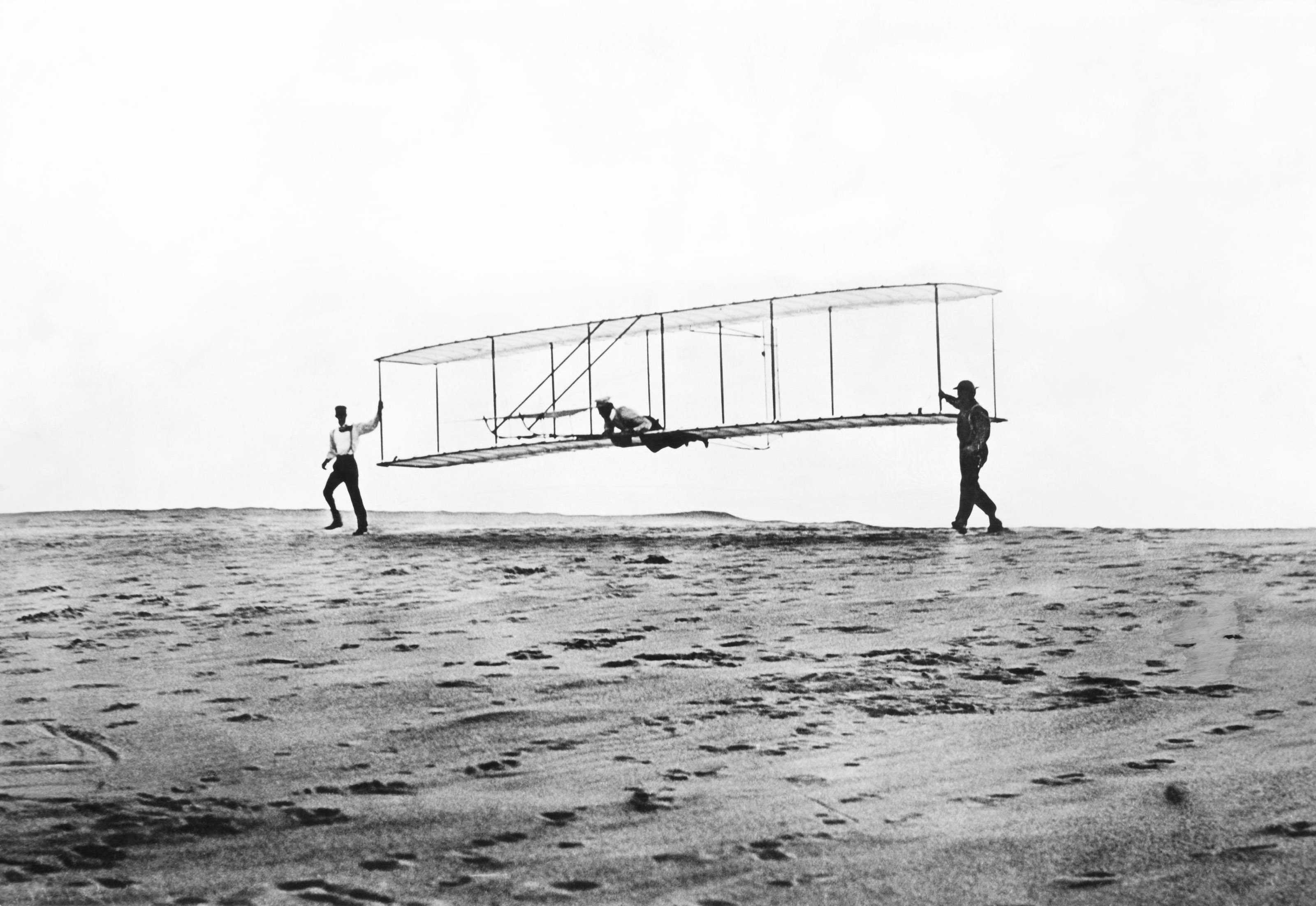 |
| George Washington Carver | One of the main crops in the south was cotton. However, growing cotton year after year can remove nutrients from the soil. Eventually, the cotton crop will grow weak. Carver taught his students to use crop rotation. One year they would grow cotton, followed by other crops such as sweet potatoes and soybeans. By rotating the crops the soil stayed enriched ALSO ENCOURAGED THEM TO GROW PEANUTS BECAUSE THE BOLL WEEVILS (INSECT THAT ATE COTTON) DIDN'T LIKE PEANUTS!!!, 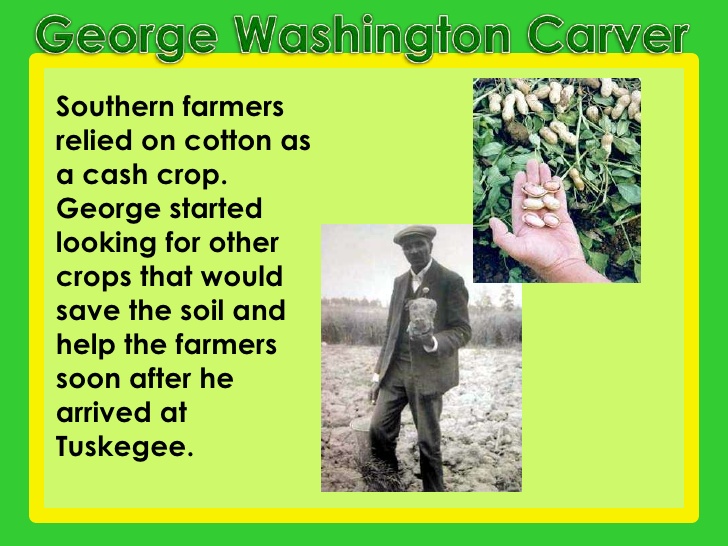 |
| Alexander Graham Bell | best known for his invention of the telephone. |
| Thomas Edison | Most famous for inventing the light bulb, phonograph, and motion picture |
| Panama Canal | The Panama Canal is a 48 mile long man-made waterway that crosses the Isthmus of Panama. The Panama Canal was built to lower the distance, cost, and time it took for ships to carry cargo between the Atlantic and the Pacific Oceans. INCREASED THE ABILITY OF COUNTRIES TO TRADE WITH ONE ANOTHER., 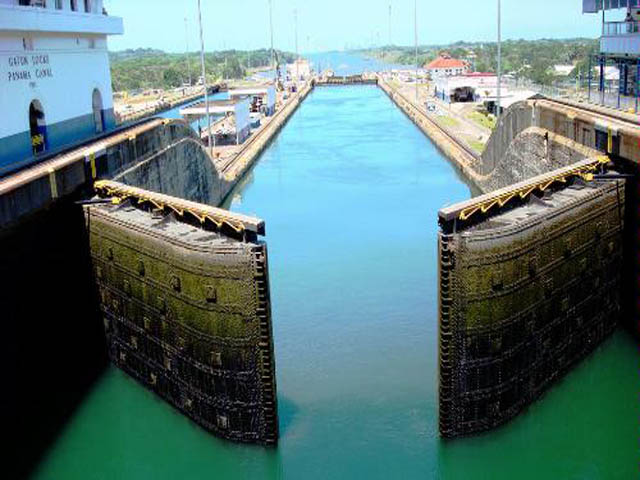 |
| Spanish American War | AMERICA SEEN AS A GLOBAL POWER AFTER THIS The Spanish American War was fought between the United States and Spain in 1898. The war was fought largely over the independence of Cuba. |
| William McKinley | William McKinley is most known for being president during the Spanish-American War. As a result of the Spanish-American War, the U.S. gained significant territory and earned the reputation as a world power. |
| Theodore Roosevelt | Prior to becoming president, Roosevelt was famous for leading the Rough Riders in a battle at San Juan Hill in Cuba (Spanish American War). While he was president he gained the nickname The Trust Buster for breaking up large companies called monopolies. His most famous quote is "Speak softly and carry a big stick." Responsible for building of Panama Canal. |
| Indian Reservations | SENT TO THESE PLACES AS A RESULT OF WESTWARD EXPANSION An Indian reservation is land that is set aside for Native Americans by the United States government. Reservations are governed by the local Native American government. The tribe has its own laws, police, and court system. Federal laws (laws of the U.S. government) do apply on reservations, but state laws do not. |
| Lusitania | The sinking of the Lusitania was an important event in World War I. The death of so many innocent civilians at the hands of the Germans galvanized American support for entering the war, which eventually turned the tide in favor of the Allies., 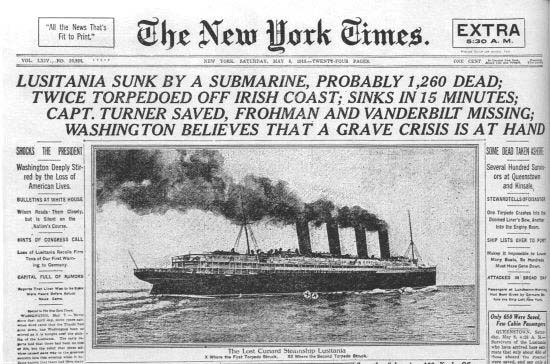 |
| Uboats | German submarines that were famous for sinking any allied ships that were going towards England and Europe. KNown for unrestricted submarine warfare against all ships, military or not. |
| Treaty of Versaille | Peace treaty at the end of WW1 in 1919.,  |
| Louis Armstrong | ROARING 20'S Louis Armstrong, nicknamed "Satchmo," "Pops" and, later, "Ambassador Satch," was born on August 4, 1901, in New Orleans, Louisiana. An all-star virtuoso, he came to prominence in the 1920s, influencing countless musicians with both his daring trumpet style and unique vocals., 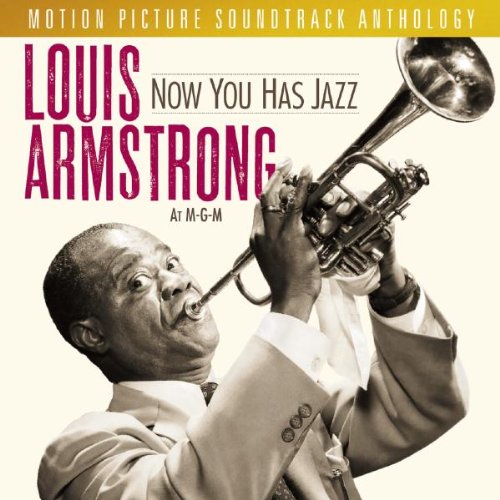 |
| Harlem Renaissance | In the 1920s, artists and writers in “the capital of black America” produced an explosion of creativity in music and culture during the Roaring 20's, 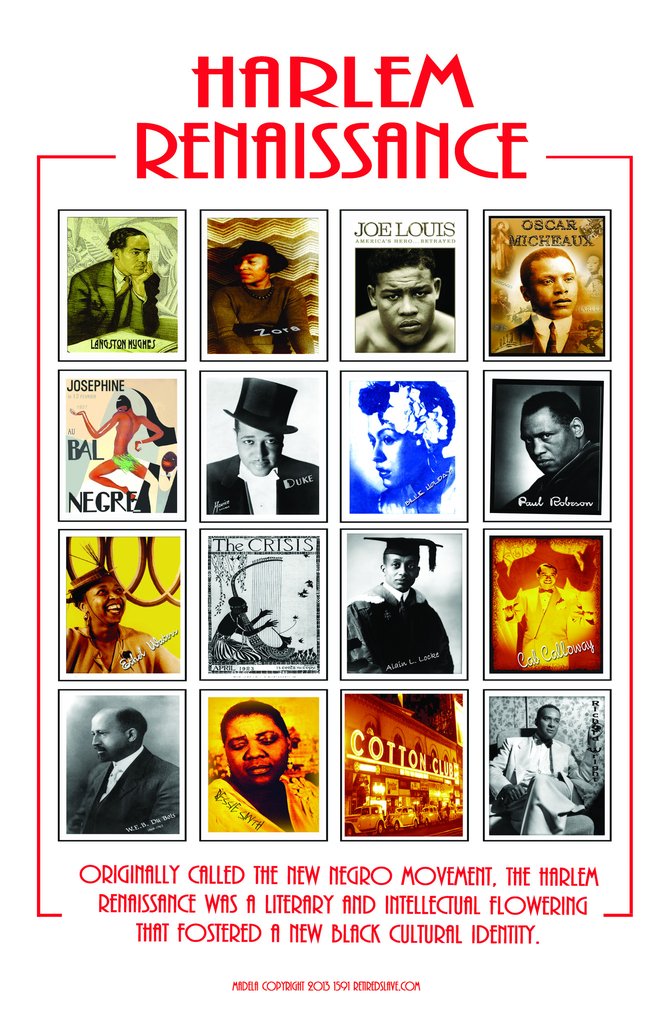 |
| Langston Hughes | Langston Hughes wrote from 1926 to 1967. In that time he wrote more than 60 books, including poems, novels, short stories, plays, children's poetry, musicals, operas, and autobiographies. He was the first African American to support himself as a writer, and he wrote from his own experience. |
| Babe Ruth | ROARING 20'S Ruth's success on the field was matched by a lifestyle that catered perfectly to a pre-Depression America hungry for a fast lifestyle. Rumors of his large appetite for food, alcohol, and women, as well as his tendency toward extravagant spending and high living, were as legendary as his exploits at the plate. |
| Henry Ford | Most famous for building cars, but also known for using assembly line to do this.The Assembly Line - It is often stated that Henry Ford invented the assembly line. This is where a large number of products are made one step at a time as they pass down a line. Using an assembly line allows for the mass production of products at a cheaper price than trying to build an entire product one at a time., 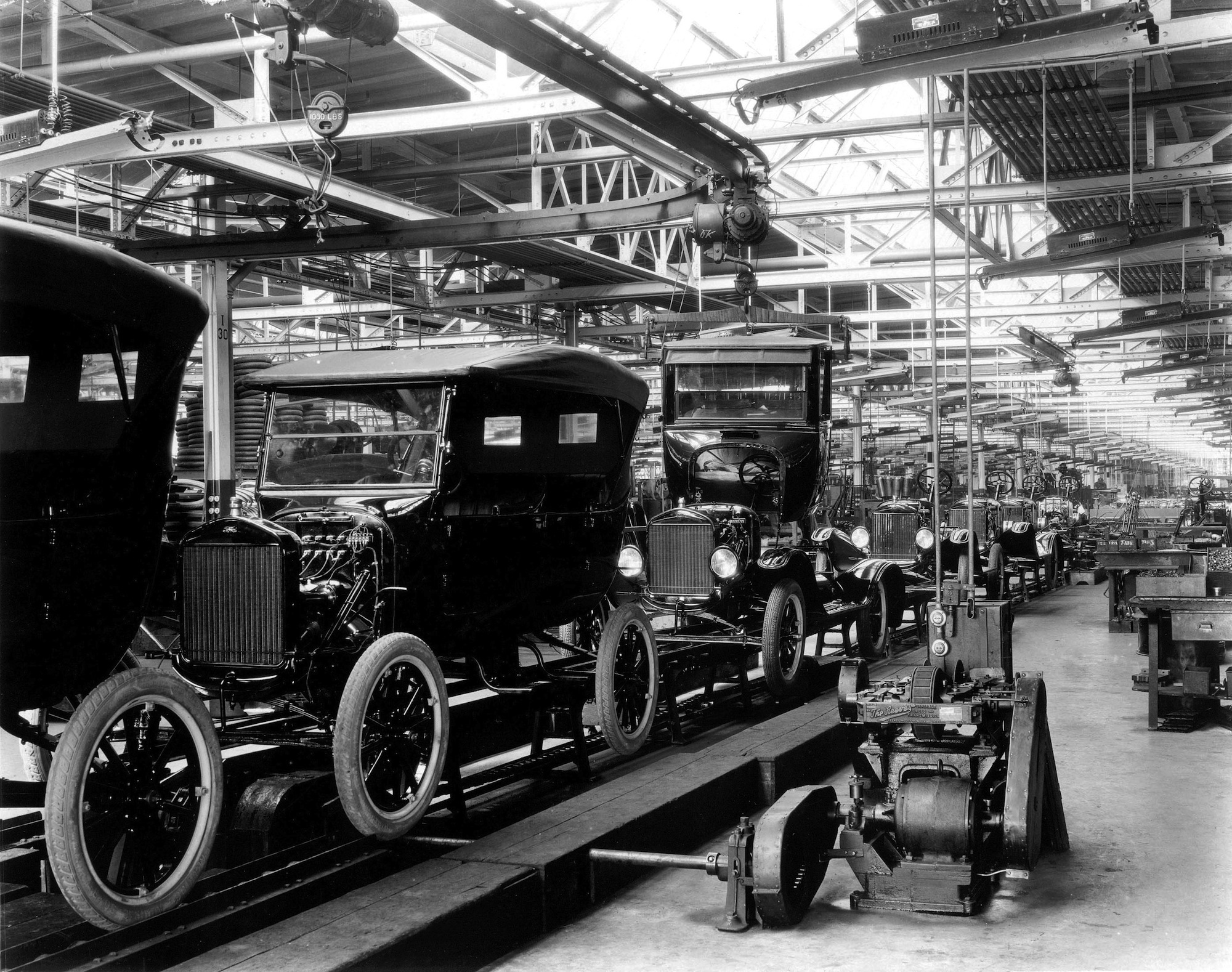 |
| Charles Lindbergh | First to make the transatlantic flight (plane was called the Spirit of St. Louis) from New York to Paris in 1927. |
| Jazz Age | Jazz was so popular in the 1920s that the time period is often called the "Jazz Age" by historians. This was also a time of prohibition when selling alcohol was illegal. During the Jazz Age, illegal clubs called "speakeasies" were opened all over the United States. These clubs featured jazz music, dancing, and sold alcohol. |
| Stock Market Crash of 1929 | CONTENTS PRINT CITE On October 29, 1929, Black Tuesday hit Wall Street as investors traded some 16 million shares on the New York Stock Exchange in a single day. Billions of dollars were lost, wiping out thousands of investors. In the aftermath of Black Tuesday, America and the rest of the industrialized world spiraled downward into the Great Depression (1929-39), |
| Dust Bowl | The Dust Bowl was an area in the Midwest that suffered from drought during the 1930s and the Great Depression. The soil became so dry that it turned to dust. Farmers could no longer grow crops as the land turned into a desert., 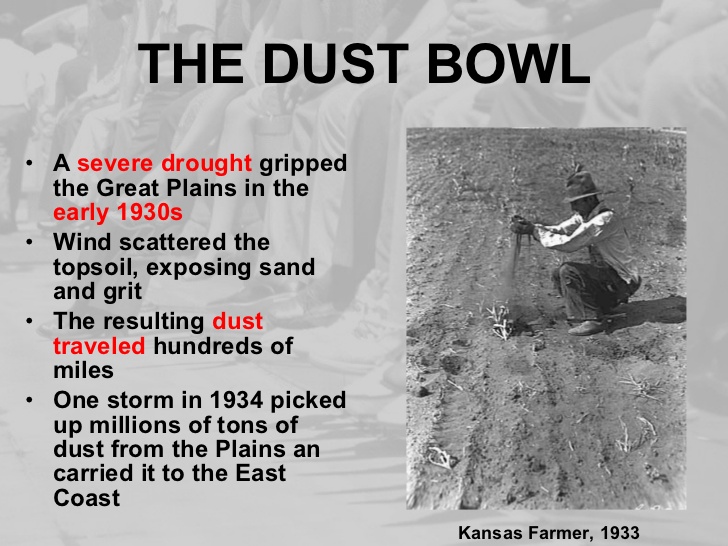 |
| FDR | Franklin D. Roosevelt was the only U.S. president to be elected four times. He led the United States through the Great Depression and World War II. |
| Soup kitchens | Soup kitchens in America started around 1929 when the effects of a growing depression began to be felt. The need for soup kitchens was felt even more keenly when the tailspin in the economy worsened in 1932, and 12 million Americans — about 25 percent of the normal labor force — were out of work., 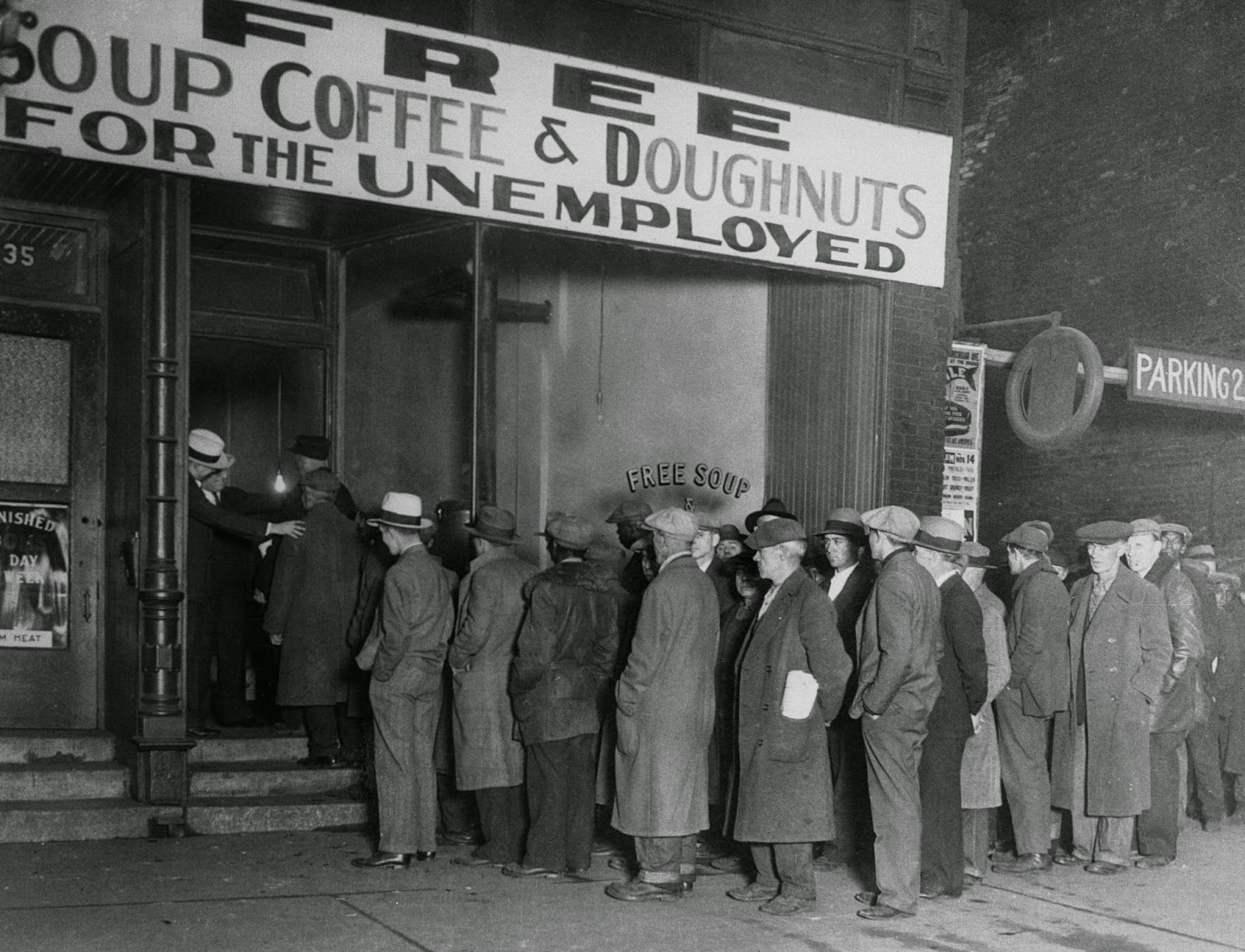 |
| Herbert Hoover | In 1929 Herbert Hoover became the 31st president of the United States. Soon after his election the country sank into the Great Depression. |
| Margaret Mitchell | 1900–49). She wrote only one book, but it sold as many as 50,000 copies in a single day. It inspired one of the most popular films in motion-picture history, and it won the Pulitzer prize. When Margaret Mitchell wrote ‘Gone with the Wind |
| Jesse Owens | One four Olympic gold medals during 1936 Olympics in Berlin, Germany. Germany was under the rule of the Nazis and Hitler |
| New Deal | The New Deal was the name of President Franklin Roosevelt's legislative agenda for rescuing the United States from the Great Depression. |
| Civilian Conservation Corps | The Civilian Conservation Corps (CCC) was started by Franklin D. Roosevelt during the Great Depression. The CCC gave young men jobs such as fighting forest fires, digging ditches, and planting trees. The CCC paid these men about thirty dollars a month. |
| Tennessee Valley Authority | This act of Congress created the Tennessee Valley Authority (TVA), a federal corporation. The new agency was asked to tackle important problems facing the Valley, such as flooding, providing electricity to homes and businesses, and replanting forests |
| Works Progress Administration | agency in the United States during the New Deal. It was formed in 1935, during the "Second New Deal". It employed more workers than any government agency had before. It built thousands of roads, schools, and government buildings. |
| Rosie the Riveter | Rosie the Riveter is a cultural icon of the United States, representing the American women who worked in factories and shipyards during World War II, many of whom produced munitions and war supplies.[1][2] These women sometimes took entirely new jobs replacing the male workers who were in the military. Rosie the Riveter is used as a symbol of feminism and women's economic power |
| Tuskegee Airmen | The Tuskegee Airmen were the first group of African Americans to fly warplanes for the U.S. military. They served during World War II. At that time, during the 1940s, African Americans had fewer rights than whites had. The Tuskegee Airmen did their jobs as well as any white pilots. After seeing how well the airmen did, other African Americans pushed harder for equal rights. |
| United Nations | organisation was created following World War II to prevent another conflict;The goals of the United Nations are: to keep world peace to help countries get along to improve living conditions for people all over the world and to make the world a better place |
| 12th amendment | Changed the presidential election rules. |
| 17th amendment | Established that senators would be directly elected. |
| 15th amendment | Gave all men the right to vote regardless of race or color or whether they had been slaves. |
| 19th amendment | women the right to vote. |
| 23rd amendment | - Provided that Washington, DC be allowed representatives in the Electoral College. |
| 24th amendment | Said that people don't have to pay a tax, called a poll tax, in order to vote. |
| 26th amendment | Set the national voting age at 18. |
| Amendment process | It takes two steps to add an amendment to the Constitution: Step 1: Proposal - An amendment can be proposed by either a two-thirds vote in Congress, including both the House of Representatives and the Senate, or a national convention made up of two-thirds of the states. All our current amendments were proposed by Congress. Step 2: Ratification - Next, the amendment has to be ratified. It can be ratified by either three-fourths of the state legislatures or by state conventions in three-fourths of the states. Only the 21st amendment used the state convention method. |
| Due Process of the Law | a person cannot be deprived of life or liberty or property without appropriate legal procedures and safeguards |
| Great Salt Lake | The Mojave Desert occupies a significant portion of Southern California and parts of Utah, Nevada, and Arizona. |
| Mojave Desert | The Mojave Desert occupies a significant portion of Southern California and parts of Utah, Nevada, and Arizona. |
| Kitty Hawk, NC | The Wright Brothers spent three years in Kitty Hawk while they experimented with a means to achieve powered flight. |
| Pearl Harbor | December 7th, 1941; A date the live in infamy; Led to the United States entering WW2 |
| Montgomery, Ala. | Famous for Bus Boycott with Rosa Parks. |
| Brown vs. Board of Education of Topeka | Got rid of the idea of "Separate but Equal"; It said that schools could no longer be segregated because of race. |
| Montgomery Bus Boycott | The arrest of Rosa Parks and her placement in jail was the perfect opportunity for the NAACP to start a protest. They created pamphlets and publications requesting that all of the Black Americans in Montgomery boycott (refuse to support) the bus system. Since a majority of the bus riders were Black Americans, they knew this would hit the system where they would notice it. |
| Civil Rights Act | The Civil Rights Act of 1964 was one of the most important civil rights laws in the history of the United States. It outlawed discrimination, ended racial segregation, and protected the voting rights of minorities and women. |
| Voting Rights Act | Imagine standing in a long line to vote, only to be told that you are not literate enough to cast your ballot, or you didn't own property so your right to vote was invalidated. Most likely you would be upset, maybe even irate. But for many African Americans in the American South during the 1950s, this was the reality of voter discrimination. |
| Thurgood Marshall | Supreme Court Justice :Marshall's most famous case came in 1954. It was called Brown v. Board of Education. In this case Marshall argued that schools should not be segregated Read more at: http://www.ducksters.com/history/civil_rights/thurgood_marshall.php This text is Copyright © Ducksters. Do not use without permission. |
| Rosa Parks | It was on December 1, 1955 that Rosa made her famous stand (while sitting) on the bus. Rosa had settled in her seat on the bus after a hard day's work. All the seats on the bus had filled up when a white man boarded. The bus driver told Rosa and some other African-Americans to stand up. Rosa refused. The bus driver said he would call the police. Rosa didn't move. Soon the police showed up and Rosa was arreste Read more at: http://www.ducksters.com/biography/women_leaders/rosa_parks.php This text is Copyright © Ducksters. Do not use without permission. THIS LED TO MONTGOMERY BUS BOYCOTT |
| Martin Luther King Jr. | Martin Luther King Jr. (1929-1968) was a Baptist minister and social activist who played a key role in the American civil rights movement from the mid-1950s until his assassination in 1968. |
| March on Washington | FOR CIVIL RIGHTS: The March on Washington for Jobs and Freedom took place in Washington, D.C., on August 28, 1963. Attended by some 250,000 people, it was the largest demonstration ever seen in the nation's capital, and one of the first to have extensive television coverage. |
| I HAVE A DREAM... | "I Have a Dream" is a public speech delivered by American civil rights activist Martin Luther King Jr. during the March on Washington for Jobs and Freedom on August 28, 1963, |
| Bay of Pigs Invasion | Finally, in April 1961, the CIA launched what its leaders believed would be the definitive strike: a full-scale invasion of Cuba by 1,400 American-trained Cubans who had fled their homes when Castro took over. However, the invasion did not go well: The invaders were badly outnumbered by Castro’s troops, and they surrendered after less than 24 hours of fighting. JFK president then. |
| Cuban Missile Crisis | A confrontation between the United States and the Soviet Union in 1962 over the presence of missile sites in Cuba; one of the “hottest” periods of the cold war. |
| Roaring 20's | The 1920s in the United States, called “roaring” because of the exuberant, freewheeling popular culture of the decade. The Roaring Twenties was a time when many people defied Prohibition, indulged in new styles of dancing and dressing, and rejected many traditional moral standards. |
| prohibition | making alcohol illegal during the Roaring 20's |
| D Day | CONTENTS PRINT CITE During World War II (1939-1945), the Battle of Normandy, which lasted from June 1944 to August 1944, resulted in the Allied liberation of Western Europe from Nazi Germany’s control. Codenamed Operation Overlord, the battle began on June 6, 1944, also known as D-Day, when some 156,000 American, British and Canadian forces landed on five beaches along a 50-mile stretch of the heavily fortified coast of France’s Normandy region |
| Stalin | Joseph Vissarionovich Stalin was the leader of the Soviet Union from the mid-1920s until his death in 1953. Allie of US during WW2 but became enemy during Cold War |
| Allied Powers | Great Britain, France (except during the German occupation, 1940–44), the Soviet Union (after its entry in June 1941), the United States (after its entry on December 8, 1941), and China. |
| Axis Powers | the coalition headed by Germany, Italy, and Japan that opposed the Allied powers in World War II. |
| Effects of Civil War | The Civil War was one of the most tragic wars in American history. More Americans died then in all other wars combined. Brother fought against brother and the nation was torn apart. In the end, we must look at the important consequences of the conflict. There may be others, but this is a good list to work off. A. The nation was reunited and the southern states were not allowed to secede. B. The South was placed under military rule and divided into military districts. Southern states then had to apply for readmission to the Union. C. The Federal government proved itself supreme over the states. Essentially this was a war over states rights and federalism and the victor was the power of the national government. D. Slavery was effectivly ended. While slavery was not officially outlawed until the passage of the 13th amendment, the slaves were set free upon the end of the war. E. Reconstruction, the plan to rebuild America after the war, began. |
| Emigrating to the United States | Why did people leave other countries to come to United States?In the late 1800s, people in many parts of the world decided to leave their homes and immigrate to the United States. Fleeing crop failure, land and job shortages, rising taxes, and famine, many came to the U. S. because it was perceived as the land of economic opportunity. Others came seeking personal freedom or relief from political and religious persecution. With hope for a brighter future, nearly 12 million immigrants arrived in the United States between 1870 and 1900. |
| Effects of Westward Expansion | Native Americans were forced to leave their lands and moved to reservations set up by the government. They lost their ability to hunt buffalo (massacred during the building of transcontinental railroad). Many died when they attempted to defend their homelands against those moving west or because of new diseases from the settlers. |
| Iwo Jima | The Battle of Iwo Jima was a major battle in which the United States Marine Corps landed on and eventually captured the island of Iwo Jima from the Japanese Imperial Army during World War II. The island was only 500 miles from Japan so it was strategically important for United State's bombers. |
| Mussolini | Leader of Italy and ally of Hitler during World War 2 |
| Churchill | As prime minister of the United Kingdom, Sir Winston Churchill rallied the British people during WWII, and led his country from the brink of defeat to victory. |
| US deaths from WW2 | 407,300 deaths with most of them being males; this led to increased role of women as they took over the jobs and responsibilities of the males at war |
| US deaths from WW1 or Great War | Over 116,000 deaths which led to females taking on a more important role in all jobs within the US - demonstrated what women could do and changed their roles in society |
| Voluntary Exchange | act of buyers and sellers freely and willingly engaging in market transactions. Moreover, transactions are made in such a way that both the buyer and the seller are better off after the exchange than before it occurred. |
| specialization | focusing on a specific thing that you do well instead of working on many different things. For instance, the South specialized in agricultural production while the North focused on industrial activities. |
| price incentives | increasing the demand for a product by decreasing the cost to the consumer/buyer |
| opportunity cost | make a choice for one thing over another. For instance, choosing one route for exploration over another. |
| personal budget | Managing money so you can pay all your bills and still have some left over for savings. |
| entrepeneurs | a person who owns their own business |
| NATO | The members of the North Atlantic Treaty Organization (NATO) are countries in Europe and North America. All have made a promise to help defend each other if any of them is attacked. NATO was founded in 1949. |
| Harry Truman | The president who made the decision to use the first atomic bomb on Japan., 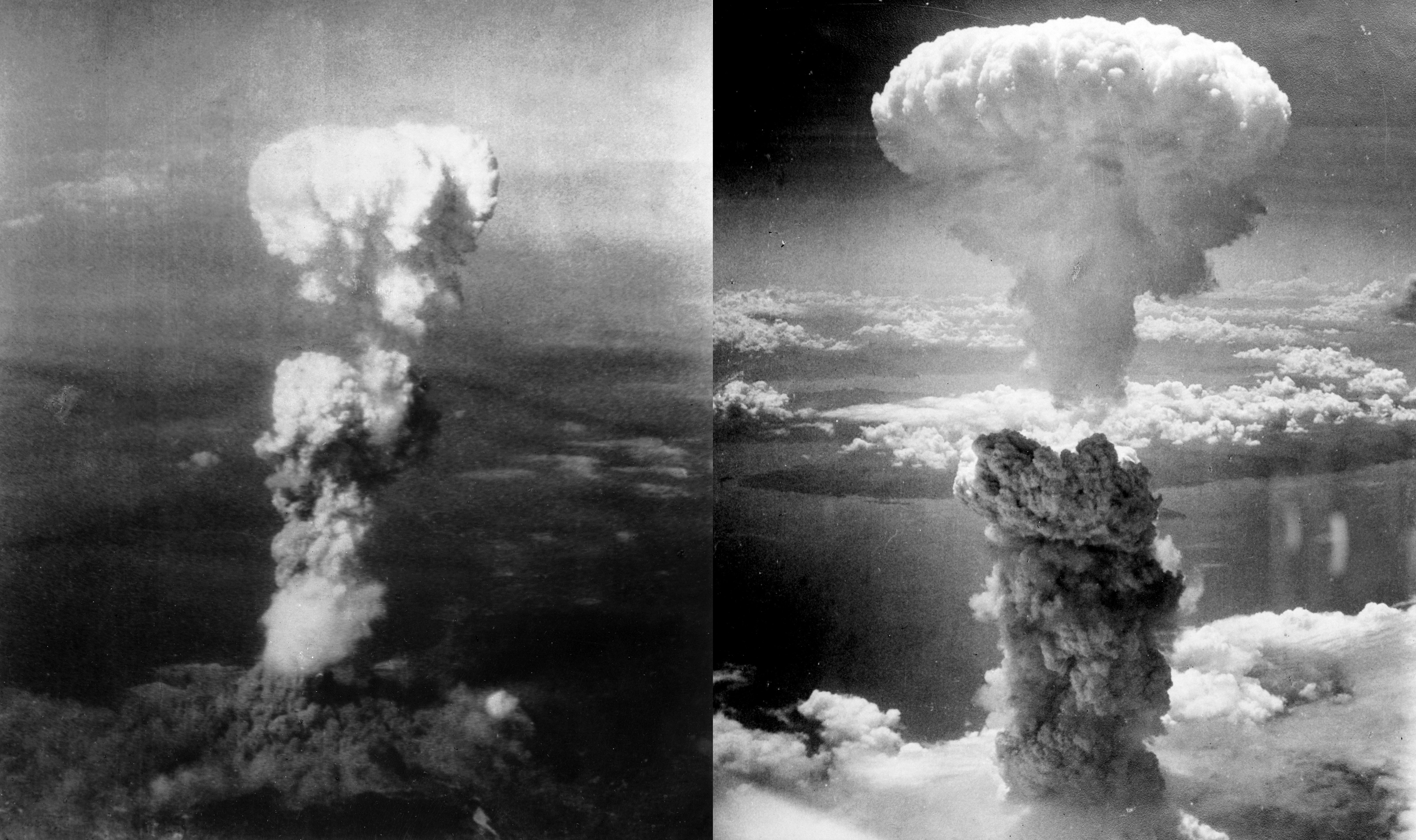 |
| JFK | President during Vietnam War. John F. Kennedy is most famous for being assassinated early in his presidency. He is also famous for the Bay of Pigs invasion and the Cuban missile crisis. |
| Lyndon B. Johnson | Lyndon Johnson was known for becoming president after President Kennedy was assassinated. His presidency is known for the passage of civil rights legislation and the Vietnam War. |
| Agricultural | farming |
| Industrial | factories |
| supply | How much you have of something. |
| demand | How much people want something. This effects the price. |
| inflation | inflation is a rise in prices relative to money available. In other words, you can get less for your money than you used to be able to get. ... You still have only 50 cents, but the price of the candy bar has gone up. YOU CAN'T BUY AS MUCH WITH THE MONEY YOU HAVE. |
| deflation | A PERIOD WHEN YOUR MONEY BUYS MORE. YOU WANT TO SPEND WITH THIS AND SAVE WITH INFLATION. |
| September 11, 2001 | On September 11, 2001, terrorists attacked the Unites States. They hijacked four airplanes in mid-flight. The terrorists flew two of the planes into two skyscrapers at the World Trade Center in New York City. The impact caused the buildings to catch fire and collapse. Another plane destroyed part of the Pentagon (the U.S. military headquarters) in Arlington, Virginia.,  |
| Duke Ellington | Edward Kennedy "Duke" Ellington (April 29, 1899 – May 24, 1974) was an American composer, pianist, and Big band leader. He came to fame during the Harlem Renaissance during the Roaring 20's. |
| Iron Curtain | The Iron Curtain is a term used in the West to refer to the boundary line which divided Europe into two separate areas of political influence from the end of World War II until the end of the Cold War., 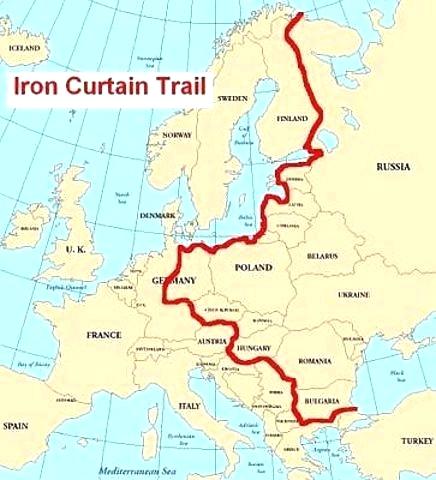 |
| Berlin Airlift | The Berlin Airlift could be called the first battle of the Cold War. It was when western countries delivered much needed food and supplies to the city of Berlin through the air because all other routes were blocked by the Soviet Union., 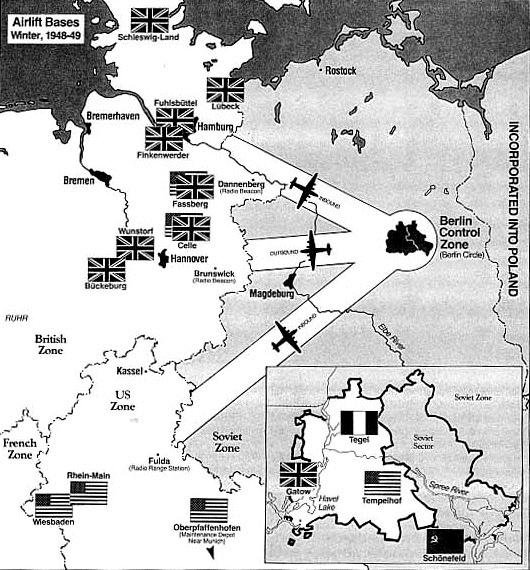 |
| Korean War | Proxy war during Cold War. |
| Joseph McCarthy | Red Scare leading to many people being wrongly accused of being communist., 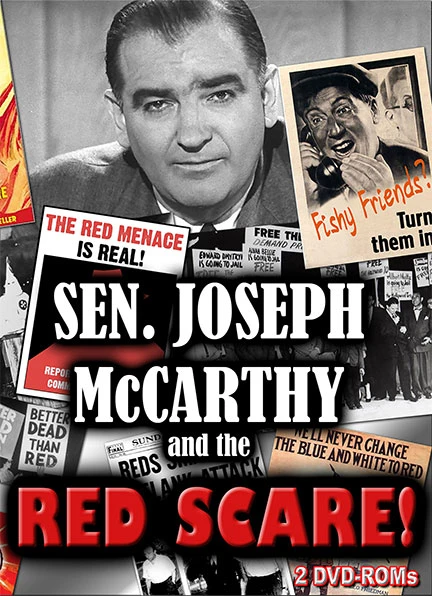 |
| Nikita Kruschev | the leader of the Soviet Union after the death of Joseph Stalin. He ruled from 1953–1964., 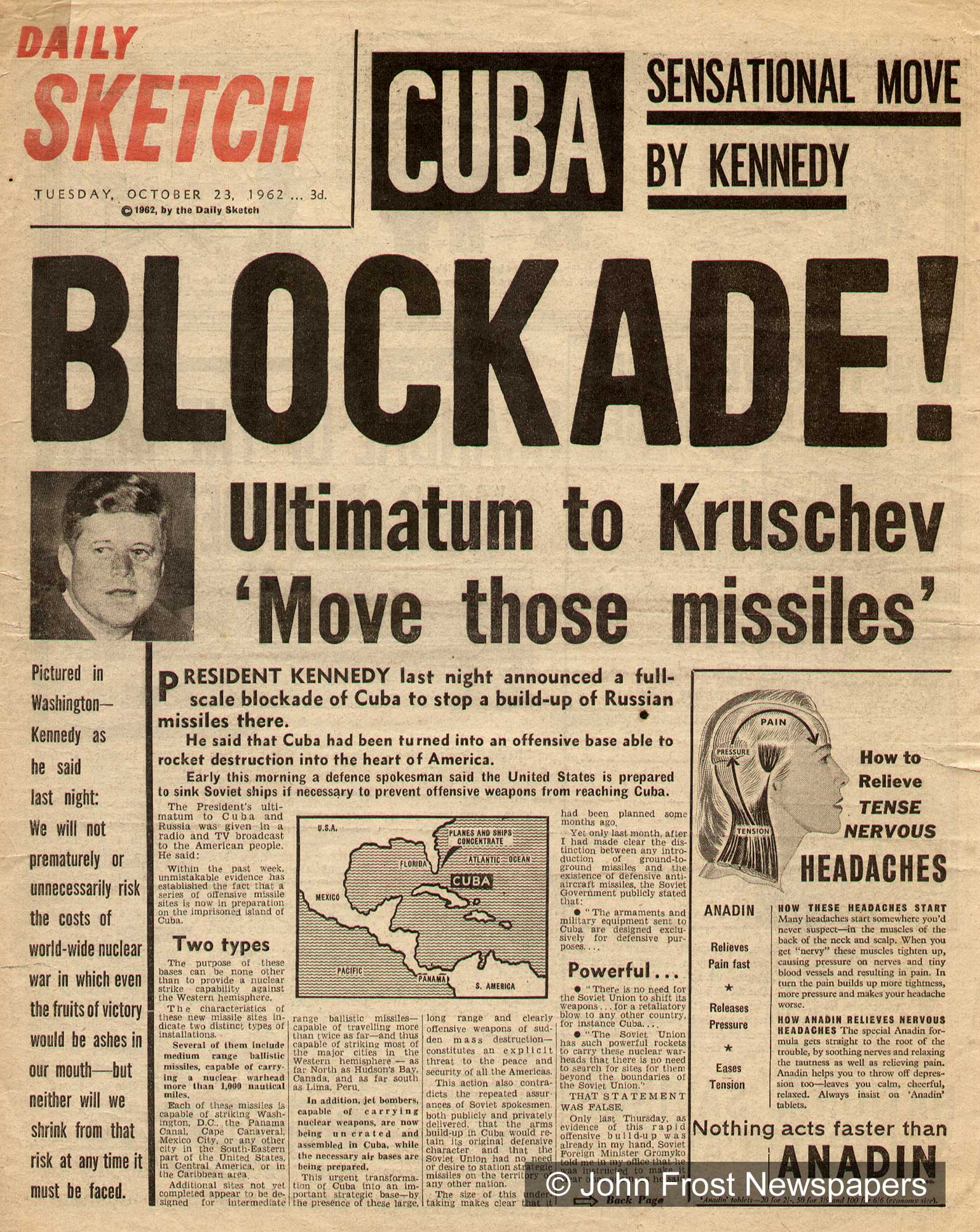 |
| Space Race | During the Cold War the United States and the Soviet Union engaged a competition to see who had the best technology in space. This included such events as who could put the first manned spacecraft into orbit and who would be the first to walk on the Moon. The Space Race was considered important because it showed the world which country had the best science, technology, and economic system.,  |
| Gulf War | The Gulf War was fought between Iraq and a coalition of nations that included Kuwait, the United States, the United Kingdom, France, Saudi Arabia, and more. It began when Iraq invaded Kuwait on August 2, 1990 and ended with a cease fire declared on February 28, 1991. |
| Purpose of Amendment Process | It takes two steps to add an amendment to the Constitution: Step 1: Proposal - An amendment can be proposed by either a two-thirds vote in Congress, including both the House of Representatives and the Senate, or a national convention made up of two-thirds of the states. All our current amendments were proposed by Congress. Step 2: Ratification - Next, the amendment has to be ratified. It can be ratified by either three-fourths of the state legislatures or by state conventions in three-fourths of the states. Only the 21st amendment used the state convention method., 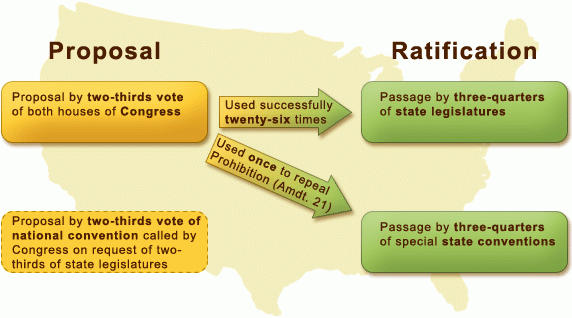 |
| Specialization and Voluntary Exchange | The free exchange of goods and services between buyers and seller in some sort of marketplace. Read more: http://www.businessdictionary.com/definition/voluntary-exchange.html |
| Specialization and standard of living | The definition of a standard of living is how well or how poorly a person or group of people live in terms of having their needs and wants met. An example of a high standard of living is a wealthy person who can buy anything he wants. An example of a low standard of living is a poor person who does not have enough food or water. |
| Fall of USSR | The collapse of the Soviet Union started in the late 1980s and was complete when the country broke up into 15 independent states on December 25, 1991. This signaled the end of the Cold War between the Soviet Union and the United State. Gorbachev was head of USSR at the time this happened.,  |
| Free Enterprise | a system in which private businesses are able to compete with each other with little control by the government. You can choose what job you want and can compete against other jobs for profit. |
| communism | an economic system where everthing is owned by the state and shared among all people |
| VJ Day | Victory over Japan during WW2, 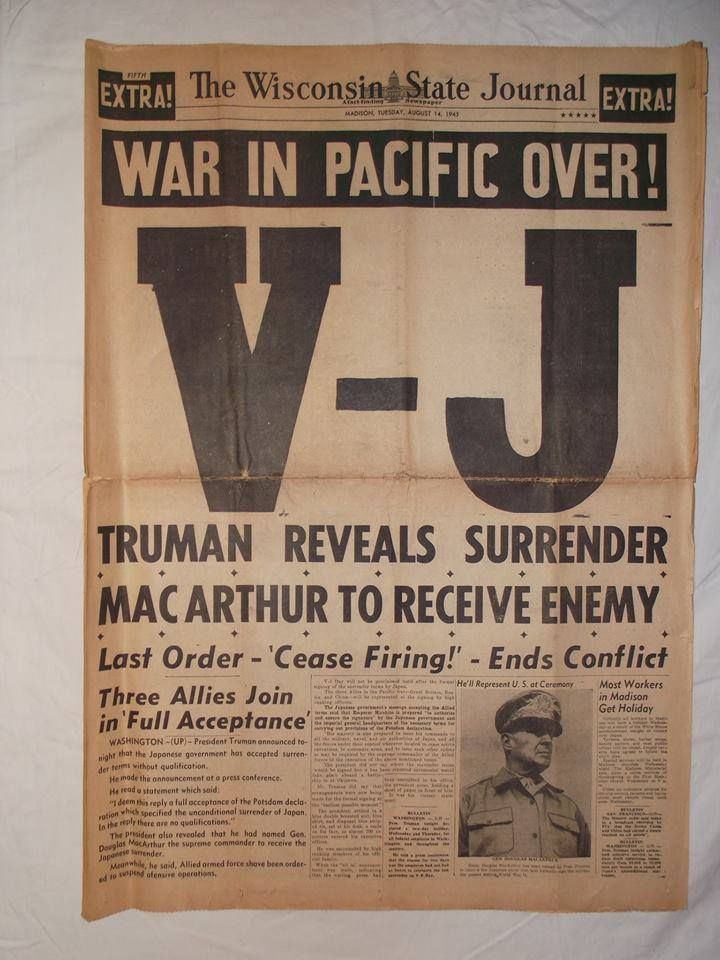 |
| VE Day | Victory in Europe during WW2, 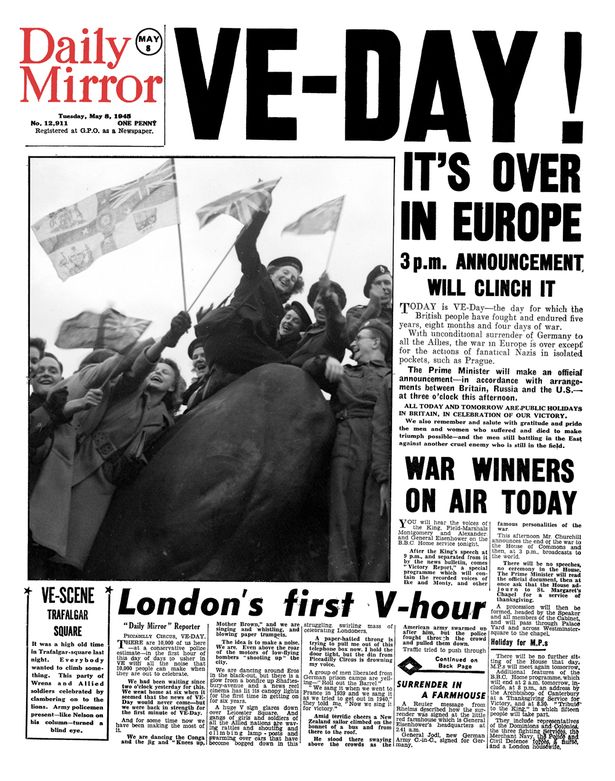 |
| The Day that will live in Infamy | Pearl Harbor, 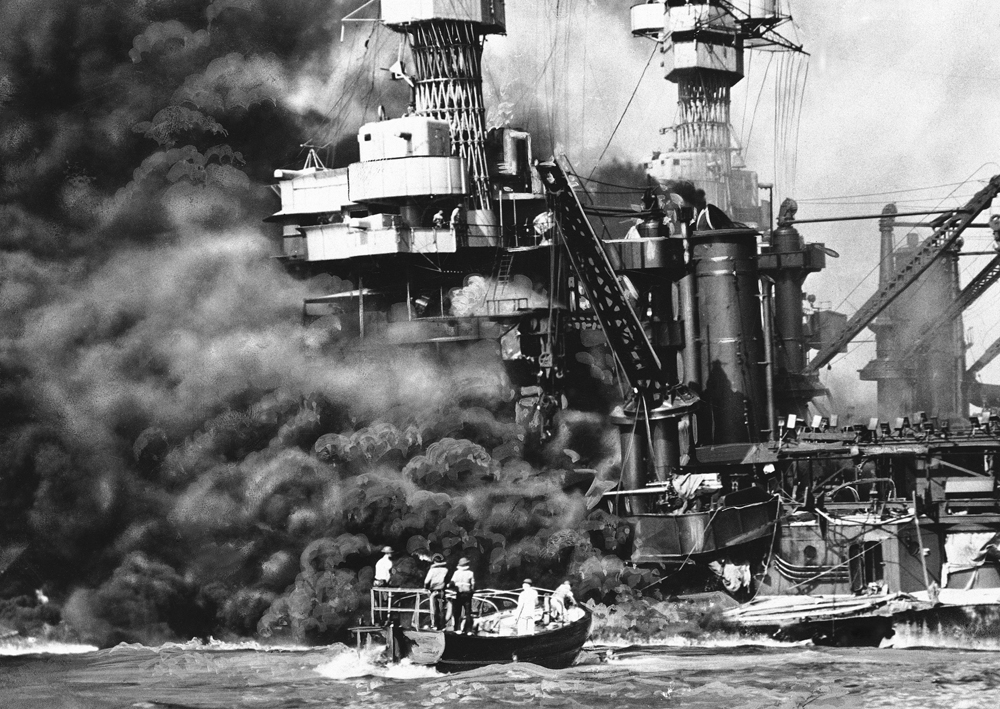 |
| Due process under the law | Due process of law is a legal concept that ensures the government will respect all of a person's legal rights instead of just some or most of those legal rights, when the government deprives a person of life, liberty, or property., 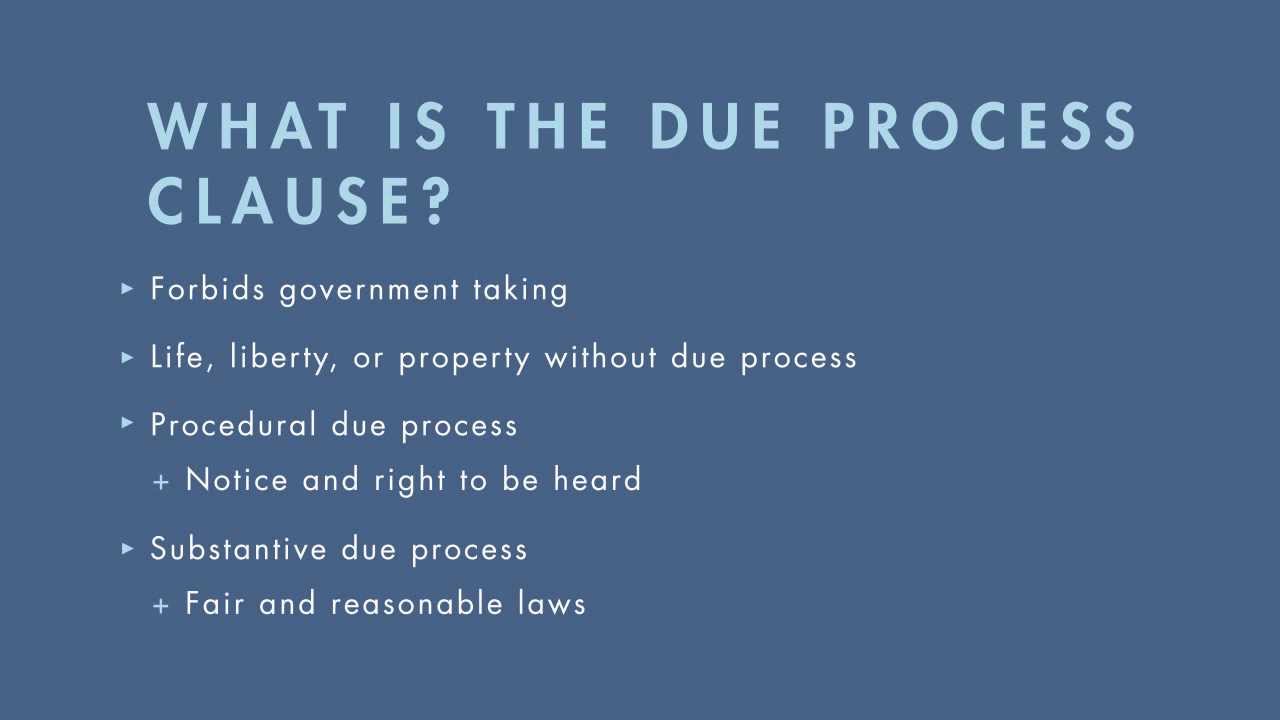 |
| Black Tuesday or Wall Street Crash | On October 29, 1929, Black Tuesday hit Wall Street as investors traded some 16 million shares on the New York Stock Exchange in a single day. Billions of dollars were lost, wiping out thousands of investors., 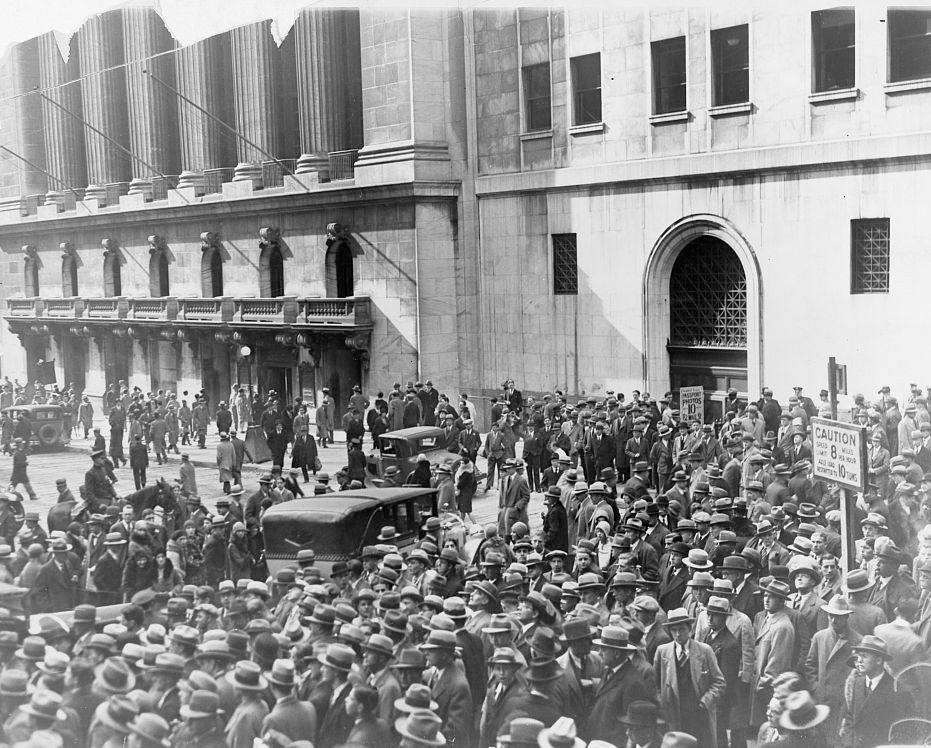 |
| Proxy War | The Cold War is now known for a number of proxy wars in which both the Soviet Union and the United States would support one side or the other in conflicts around the world. The goal of the United States was to stop the spread of communism while the Soviet Union wanted to spread communism in order to increase their own sphere of influence. Vietnam and Korea were two examples of proxy wars., 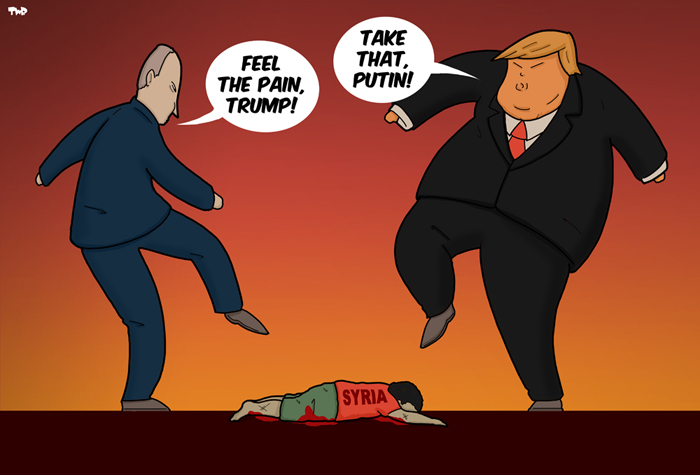 |